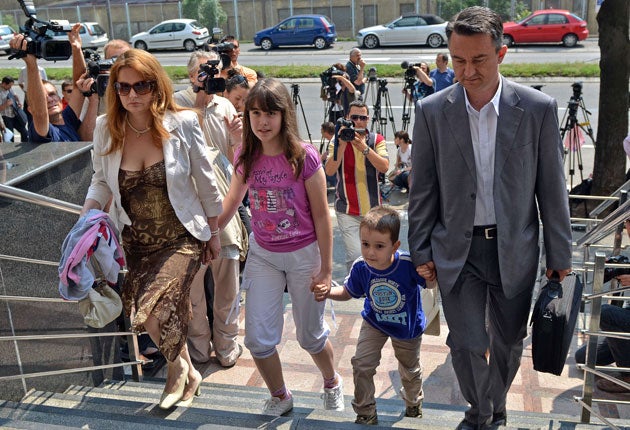Court hearing set to be focus for world's media

Everything is ready in The Hague for the arrival of Ratko Mladic, who, it is assumed, will be extradited to the Netherlands later this week.
The world's media have already descended on the Dutch coastal town: a journalistic caravan has moved from the Serbian capital, Belgrade, to the Scheveningen detention unit of the international war crimes tribunal.
Technicians were yesterday preparing satellite dishes fixed to the top of vans belonging to media outlets. They are parked across the street from the high wall and iron gates that will close behind the former Bosnian Serb general once he arrives here.
"We're only waiting for the decision of Serbian authorities," said Nerma Jelacic, a spokesperson for the war crimes tribunal.
Once the gates close, Mladic will have the usual medical check-up, which is particularly important in his case since his lawyer and family claim the man who is alleged to have ordered the slaughter of more than 7,500 Muslim men and boys in Srebrenica in 1995 is unfit to stand trial.
The court will then issue an official health bulletin on Mladic and "provide adequate care if needed".
On arrival Mladic will be taken to a holding cell, which will be on a different floor to that of the other high-profile suspect awaiting trial at The Hague, the political leader of the Bosnian Serbs, Radovan Karadzic. Within 48 hours of arrival, Mladic will appear before the court to enter his plea before the three-member panel of judges assigned by the president of the tribunal, Mehmet Guney.
The indictment against Mladic names genocide, war crimes and crimes against humanity. It is expected that he will deny any wrongdoing. Following the plea, Mladic will go to a 15 sq-metre cell in the same part of the prison as Karadzic to await trial.
According to Judge Guney, "the trial could last between a year-and-a-half and two years". That appears to be a hopeful estimate, as the cases against the most high-profile suspects so far have lasted for several years.
The panel of judges comprises the German Christoph Fluegge, the South African Bakone Moloto, and the Dutchman Alphons Orie. The appointment of a Dutch judge to the Mladic case is regarded by some as sensitive, due to the Srebrenica massacre, where Dutch peacekeepers failed in their protective mission.
The controversy led to the resignation of the Dutch government in 2002, after a report on Srebrenica held political leaders partly responsible for failing to obtain a stronger mandate for Dutch troops.
Join our commenting forum
Join thought-provoking conversations, follow other Independent readers and see their replies
Comments
Bookmark popover
Removed from bookmarks